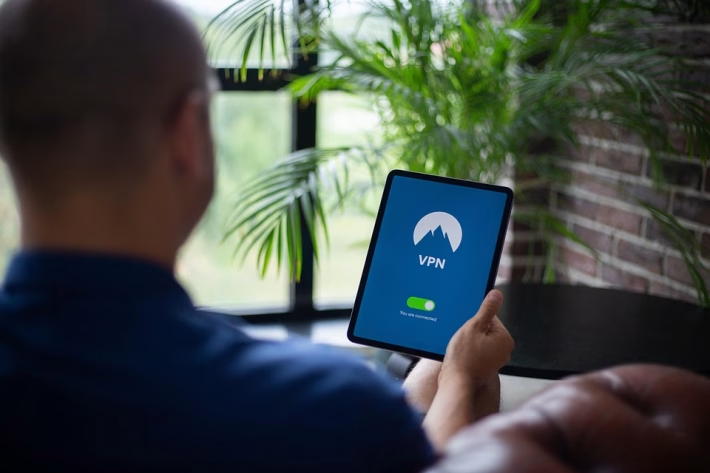Lockdown Your Privacy: The Best Antivirus Options for 2025

Introduction: Why Security and Privacy Matter Today
In an ever-evolving digital landscape, the significance of cybersecurity and privacy cannot be overstated. As we navigate through 2025, both individuals and businesses are increasingly vulnerable to a variety of cyber threats, from sophisticated cyberattacks to rampant data leaks. The rapid integration of technology into everyday life has opened new doors for malicious entities, making it imperative to prioritize security and privacy now more than ever.
In recent years, high-profile data breaches and identity theft incidents have underscored the urgent need for robust cybersecurity measures. With the global cost of cybercrime projected to reach trillions annually, the consequences of neglecting security can be catastrophic. This article not only discusses the current state of cybersecurity but also equips you with the tools, practices, and insights to protect yourself in this digital age.
Overview: The Risks Businesses and Individuals Face
Cyberattacks
The frequency and complexity of cyberattacks have surged dramatically. Ransomware attacks, which involve denying access to data until a ransom is paid, continue to target both businesses and individuals. As reported in 2024, ransomware incidents increased by over 50%, showcasing the pressing need for effective defenses.
Data Leaks
Data leaks can compromise sensitive information, from personal details to corporate secrets. In 2024 alone, over 8 billion records were exposed through breaches, affecting millions worldwide. Businesses, in particular, face reputational damage and legal ramifications when customer data is mishandled.
Identity Theft
Identity theft remains a pervasive issue, with millions falling victim each year. Cybercriminals employ various tactics, including phishing and social engineering, to steal personal information, leading to significant financial loss and emotional distress for victims.
Best Tools for Enhanced Security
To combat these threats, utilizing reliable cybersecurity software is essential. Below are some of the best tools recommended for 2025, along with their features, pricing, pros, and cons.
1. Norton 360 Deluxe
- Features: Real-time threat protection, secure VPN, password manager, and cloud backup.
- Pricing: $49.99/year for up to 5 devices.
- Pros: Comprehensive protection, user-friendly interface, and features for identity theft recovery.
- Cons: Can be resource-intensive and slower on older devices.
2. Bitdefender Antivirus Plus
- Features: Multi-layer ransomware protection, VPN, file encryption, and anti-phishing.
- Pricing: $34.99/year for 1 device.
- Pros: Exceptional malware detection rates, performance, and includes a secure browser.
- Cons: The interface can be a bit complex for novice users.
3. ExpressVPN
- Features: Unrestricted streaming, strong encryption, and a network of servers in over 90 countries.
- Pricing: $12.95/month. Discounts for long-term subscriptions.
- Pros: High-speed connections, easy to use, and no logging policy.
- Cons: More expensive than some competitors.
4. LastPass
- Features: Password generation, secure sharing, and password auditing.
- Pricing: Free tier available; Premium is $3/month.
- Pros: User-friendly, cross-platform support, and strong security features.
- Cons: Some features locked behind the premium paywall.
5. Tresorit
- Features: End-to-end encryption, secure file sharing, and collaboration tools.
- Pricing: $20/month for 1 user.
- Pros: Exceptional security and privacy focus, great for businesses.
- Cons: Expensive compared to other cloud storage options.
6. Malwarebytes
- Features: Malware scanning and removal, web protection, and system optimization.
- Pricing: $44.99/year for 1 device.
- Pros: Excellent at detecting zero-day vulnerabilities, light on system resources.
- Cons: Limited real-time protection in the free version.
7. Surfshark
- Features: Unlimited devices, ad blocker, and Strong encryption.
- Pricing: $2.49/month with a two-year plan.
- Pros: Affordable, user-friendly, and allows P2P sharing.
- Cons: Newer than established competitors, may not have as many server locations.
8. 1Password
- Features: Password management, travel mode, and biometric logins.
- Pricing: $2.99/month.
- Pros: User-friendly, strong security measures, and excellent customer support.
- Cons: No free tier available.
9. Symantec Endpoint Protection
- Features: Advanced threat protection, unified management, and threat intelligence.
- Pricing: Starts at $33.99/year per user.
- Pros: Excellent for large enterprises, automatic updates, and customizable features.
- Cons: Complexity can be overwhelming for small businesses.
10. pCloud
- Features: File storage, file versioning, and zero-knowledge encryption.
- Pricing: $4.99/month for 500 GB.
- Pros: Versatile file sharing options, affordable plans.
- Cons: Limited collaboration features compared to others.
Best Practices: Step-by-Step Methods to Improve Security and Privacy
-
Use Strong, Unique Passwords
- Avoid reusing passwords. Use a password manager to generate and store complex passwords.
-
Enable Two-Factor Authentication (2FA)
- Whenever possible, enable 2FA to add an extra layer of security to your accounts.
-
Regularly Update Software
- Keep your operating system, applications, and antivirus software updated to protect against vulnerabilities.
-
Educate Employees on Phishing Threats
- Conduct regular training sessions to help employees recognize phishing scams and social engineering tactics.
-
Back-Up Your Data
- Implement a routine backup strategy using secure cloud storage services like Tresorit or pCloud.
-
Utilize Firewall Protection
- Ensure that a firewall is enabled on all devices to help block unauthorized access.
-
Regular Security Audits
- Perform regular assessments of your security measures, identifying and addressing weak points.
- Device Management
- Regularly review and remove any devices that are no longer in use from your accounts.
Industry Trends: Insights into Current and Upcoming Cybersecurity Trends in 2025
As we progress through 2025, several key trends are emerging in the cybersecurity landscape:
-
AI and Machine Learning: Artificial Intelligence is revolutionizing how we detect and respond to threats, automating many processes and providing predictive analysis to prevent potential attacks.
-
Zero Trust Architecture: Organizations are increasingly adopting zero trust models, ensuring that every user and device is verified before granting access to sensitive data.
-
Regulatory Compliance: Stricter legislation around data protection, such as GDPR and CCPA, is pushing companies to enhance their security protocols or face hefty fines.
-
Cyber Insurance: The importance of cyber insurance is growing as businesses realize the necessity of coverage against ransomware and other cyber incidents.
- Rising Demand for Privacy-Centric Tools: With increasing awareness of data privacy, more individuals are steering towards tools that emphasize user privacy, such as secure VPNs and encrypted messaging apps.
Case Studies / Examples: Real-World Security Breaches and Lessons Learned
One notable example of a severe data breach occurred in 2023 when a major healthcare provider suffered from a ransomware attack that compromised over 10 million patient records. The aftermath not only led to significant financial repercussions but also resulted in loss of trust among patients.
Lessons Learned:
- The importance of implementing robust backup systems that are not easily accessible to cybercriminals.
- Regular training on recognizing phishing attempts helped numerous employees avoid falling victim to the initial attack vector.
Comparisons: How Leading Tools Differ in Protection, Pricing, and Usability
| Tool | Protection Features | Pricing | Usability |
|---|---|---|---|
| Norton 360 Deluxe | Real-time protection, VPN | $49.99/year | Very user-friendly |
| Bitdefender Antivirus Plus | Ransomware protection | $34.99/year | Moderate complexity |
| ExpressVPN | Strong encryption | $12.95/month | Easy to navigate |
| 1Password | Password management, encryption | $2.99/month | Very intuitive |
Pros & Cons: Balanced Analysis for Informed Decisions
Pros:
- Using multiple layers of security tools provides comprehensive defense against various threats.
- Regular education and training on cybersecurity reach beyond technology, enhancing a culture of security awareness.
Cons:
- Maintaining several software tools can lead to increased costs for both individuals and businesses.
- Complexity can overwhelm users who may not have a strong technical background, creating difficulties in effective implementation.
FAQs
What is the best antivirus software for 2025?
The best antivirus options for 2025 include Norton 360 Deluxe and Bitdefender Antivirus Plus, known for their comprehensive protection and user-friendly interfaces.
Which VPN is safest?
ExpressVPN and Surfshark are highly regarded for their strong encryption protocols and no-logging policies, making them excellent choices for user privacy.
How to secure business data?
Implement strong password policies, utilize password managers, enforce two-factor authentication, and conduct regular security training.
What are the best practices for online privacy?
Adopt VPNs, regularly update software, and use secure cloud storage solutions to keep data protected.
How can I recover from a data breach?
Immediate steps include assessing the damage, securing accounts, notifying affected parties, and revising your security measures to prevent future incidents.
Conclusion: Practical Advice and Clear Recommendations
Cybersecurity in 2025 presents myriad challenges, but with the right tools, best practices, and a proactive mindset, individuals and businesses can significantly bolster their privacy and security. Regularly reassessing your risk landscape, staying informed about emerging threats, and adopting advanced cybersecurity measures will pay dividends in safeguarding your digital life.
To summarize, consider employing a mix of the recommended tools like Norton 360 Deluxe for antivirus protection, ExpressVPN for secure browsing, and a password manager like LastPass to manage your credentials efficiently. Coupled with a commitment to ongoing learning and adapting to industry trends, you can navigate the complexities of the digital environment with confidence and resilience.
🚀 Try Ancoia for FREE today and experience the power of business automation!
🔗 Sign up now and get a 7-day free trial



